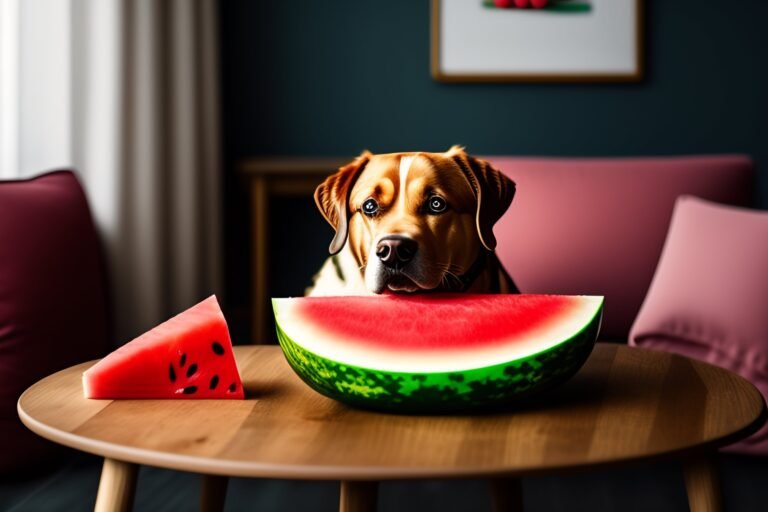Happy dogs Hours
Introduction
Dogs bring so much joy into our lives as family members. But caring for a dog is a big commitment – they rely on us for their health, safety, and happiness. Understanding a dog’s needs at different times of day and providing a proper routine is key to raising a well-adjusted, content pup.

In this article, we’ll explore a dog’s typical daily schedule including when they tend to be most active, when they need rest, and their basic care requirements throughout the day. The hours in a dog’s day can be broken down into main segments – morning, afternoon, evening, and overnight. We’ll look at optimizing each part of your dog’s routine based on their natural behaviors. With a little planning, you can ensure your furry friend gets plenty of quality time, activity, enrichment, and rest within a healthy daily cycle. Raising a happy dog starts with respecting their natural cycles while providing constructive stimulation during their waking hours.
The Ideal Morning Routine for Dogs
Mornings tend to be the most active time of day for dogs. Setting a consistent morning routine primes your pup to have an energetic, rewarding start to their day. Here are tips for an ideal morning schedule:
– Wake Up and Potty
Let your dog out first thing to relieve themselves. Most dogs need to go immediately after waking.
– Breakfast
Serve breakfast soon after your dog empties their bladder and bowels. Feed at the same early morning time daily.
– Morning Walk
Take your dog for a brisk 20-60 minute walk after breakfast when their energy is highest. This gets their digestive system moving and provides mental stimulation.
– Backyard Play
In addition to walks, plan a morning backyard play and training session. Fetch, tug of war, and practicing commands tap into mental and physical energy.
– Grooming
Brush your dog’s coat in the mornings to remove loose hair and distribute oils. Check for tender spots or skin irritations. Nail trimming and teeth brushing are also best done in the A.M.
– Training Moments
The morning motivation makes training sessions effective. Work on reinforcing commands, tricks, or manners. Keep sessions brief and rewarding.
– Attention and Affection
Make time for plenty of affection in the mornings – dogs thrive on human interaction. Calm petting and praise help build your bond.
– Prepare Kongs or Puzzles
Keep your dog engaged while you’re away with a puzzle toy stuffed with breakfast kibble or a Kong frozen with peanut butter.
Sticking to this consistent routine will start your dog’s engine for an active day. Know that puppies and high-energy dogs may need more activity and attention than older or calmer dogs in the mornings. Adjust schedules to fit your individual dog’s needs.
Afternoon Wind-Downs for Dogs
While mornings make dogs perky and energetic, afternoons often bring drowsiness as their peak activity time ends. Your dog’s schedule should shift after lunchtime to activities that meet their slowing pace and need for midday rest. Here are tips for an ideal afternoon routine:
– Lunch Time
Serve lunch on a consistent schedule, about 5-8 hours after breakfast. Breaking up meals maintains even energy.
– Shorter Walk
An afternoon walk of 15-30 minutes gets your dog outside for a bathroom break plus gentle exercise as they start settling down.
– Easy Play
Choose calmer play like fetching a ball or rope tugging for short sessions after lunch to expend any pent-up energy.
– Kongs and Puzzles
Give your dog a frozen Kong or a puzzle toy stuffed with kibble to occupy them when resting. The mental challenge prevents boredom.
– Training Refresher
Practice 5-10 minute training refreshers on basic obedience cues your dog already knows in the afternoons. Keep it low-key and rewarding.
– Grooming
Easy grooming like wiping dirty paws, brushing, and dental treats keeps your dog content in the slower hours.
– Nap Time
Dogs naturally become drowsy in the afternoons. Ensure they have access to water and a comfortable bed for uninterrupted naps. Crates work well to create a quiet space. Close curtains to block excess light.
– Attention on Demand
Spend quality time petting or massaging your dog when they seek attention or seems restless. Affection rejuvenates them.
Adjusting to a more mellow routine in the afternoons lets your dog relax and prevents over-stimulation. Know your dog’s limits and allow ample rest time. An afternoon slump prepares them for recharging overnight.
Relaxed Evenings for Dogs
In the evening, your dog will start perking up again for his last burst of energy before bedtime. Keep evenings low-key with this relaxing routine:
– Early Dinner
Serve dinner in the late afternoon or early evening. Allow your dog a few hours to digest before sleep to prevent upset stomach or bowel issues at night.
– Family Time
Spend quality time together in the evenings with calm activities. Try gentle brushing, light training sessions, or cuddling on the couch.
– Potty Break
Take your dog outside right before bedtime so they can empty their bladder and bowels. Most dogs can hold their bathroom needs overnight after an evening trip outside.
– Sleep Space Preparation
Make sure your dog’s sleep space is ready before bed. Use sheets or beds that can be easily washed in case of accidents. Place fresh water within reach overnight.
– Lights Out
Turn off bright overhead lights in the evening to help cue your dog that it’s winding down time. Keep lamps or string lights on for comfort if needed.
– Sleep Aids
Consider remedies to relax your dog before bed such as calming treats, pheromone diffusers, white noise machines, or slow breathing exercises. Find what best promotes rest.
– Ignoring Attention Seeking
If your dog tries to delay bedtime with attention-seeking behavior, redirect them to their bed and ignore them. Overstimulation can sabotage sleep.
– Patience With Puppies
Expect puppies to resist sleeping. Gently return them to their crates and ignore whimpering. Eventually, they understand it’s time to settle down.
Adhering to a peaceful evening routine gets your dog mentally prepared for sleep. Show them through your actions that the day is winding down. Maintaining consistency from night to night regulates their circadian rhythms.
Overnight Hours: Importance of Dog Sleep
While humans are awake and active much of the 24-hour cycle, dogs spend the majority of nighttime hours asleep. Ensuring sufficient quality rest overnight is crucial for your dog’s well-being. Here’s what to know:
Sleep Needs by Age
Puppies, adult dogs, and seniors have different sleep requirements:
– Puppies: 15-20 hours per day
– Adult dogs: 12-14 hours per day
– Senior dogs: More than 14 hours per day
Sleep Stage Cycles
Like humans, dogs cycle through light, deep, and REM sleep. Different stages are vital for body restoration, energy conservation, and brain development. Disrupting these cycles impairs function.
Growth and Development
The hormones essential for growth and development in dogs are produced during deep sleep phases. Puppies who get insufficient sleep may suffer delayed physical and social maturation.
Energy Conservation
While asleep, a dog’s metabolic rate drops to conserve energy. Dogs have higher energy needs than humans, so adequate rest prevents exhaustion.
Learning and Memory
REM sleep is critical for dogs’ learning capacity and memory. Lack of REM impairs their ability to remember commands, routines, people’s faces, and more.
Immune Function
Deep sleep is when cells linked to immune response regenerate. Dogs who don’t get enough deep rest are prone to more frequent and severe infections.
Brain Waste Removal
While asleep, the brain clears out neurotoxic waste accumulated during waking hours. Interruptions in sleep prevent this crucial cleanup.
Behavioral Issues
Just like tired humans, overtired dogs are more likely to show crankiness, aggression, hyperactivity, anxiety, and other behavior issues. Rest reboots the brain.
Safety Risks
Sleep deprivation impairs judgment and reaction time in dogs. This increases the risks of accidents like wandering into traffic or altercations with other pets.
Overall Health
Lack of high-quality rest stresses all of the body’s systems. Sleep is essential for the cardiovascular, digestive, immune, nervous system, and metabolic health.
Signs of Tiredness
Yawning, watery eyes, lying down often, disinterest in play, and seeking isolation signal your dog needs more daytime rest or earlier bedtimes.
Providing the right sleep setup is just as imperative as daytime activity and enrichment for your needs. Follow their lead on optimal sleep hours. If your dog seems constantly exhausted despite ample rest, consult your veterinarian to rule out medical issues. Prioritizing healthy sleep habits benefits your dog both physically and mentally.
Conclusion
Your dog’s daily schedule has a huge impact on their happiness and wellbeing. Dogs thrive on consistency. By understanding their natural biorhythms, you can set up an enriching routine to meet their needs all day long. Mornings are an ideal time for vigorous activity, training, and bonding. The afternoons bring pleasant wind-downs and much-needed naps. Early evenings reserved for family time get your dog relaxed before bed.
Overnight is when proper restorative sleep recharges your dog’s mind and body. Disrupting these natural cycles through inconsistent timing or insufficient rest can create physical, mental, and behavioral issues. Respecting the ebb and flow of your dog’s energy without overexertion or deprivation is key. Work and life commitments make it tough to be there hour by hour – consider doggie daycare, pet sitters, or walkers to fill the gaps.
When cared for according to their natural rhythms, dogs flourish as healthy, well-adjusted members of the family. Stay tuned in to your dog’s unique needs. With loving attention to their daily and nightly habits, you’ll be rewarded with a happy companion by your side.







